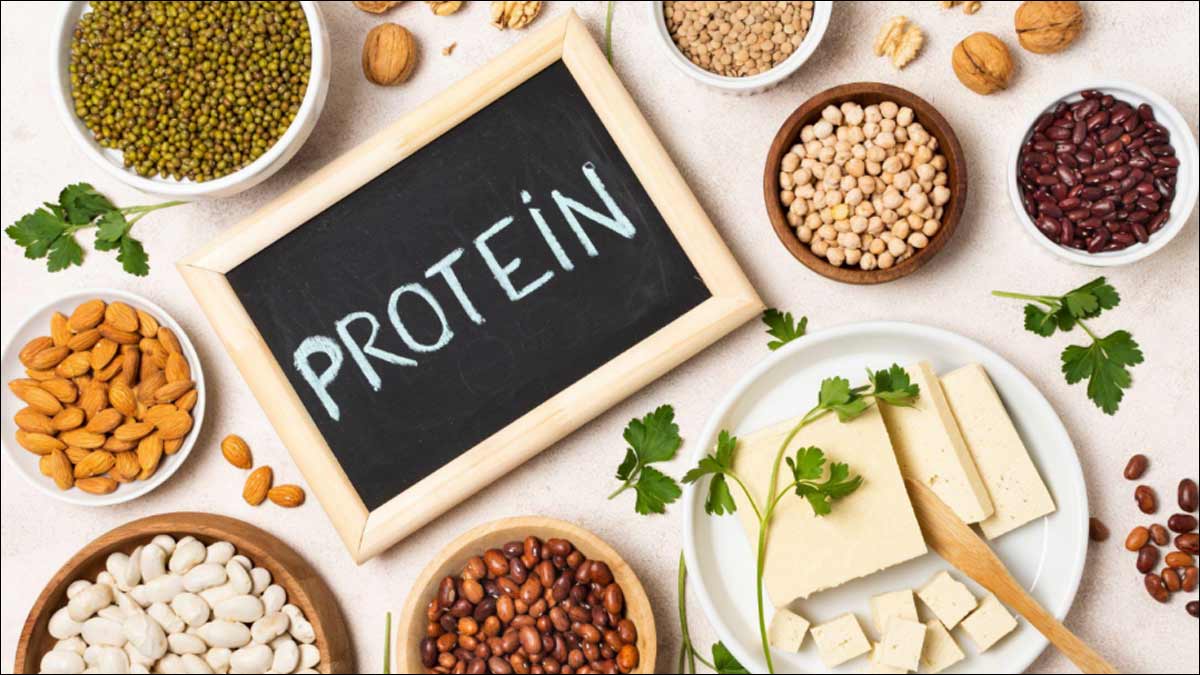
Protein is an important macronutrient that plays an important role in building and repairing the tissues in your body. It also helps maintain healthy muscles, and supports the functioning of your immune system. It is made up of amino acids that are the building blocks of protein. Through this blog, let’s understand the role protein plays in our body, its various sources, and the recommended dosage.
Table of Content:-
What is Protein?
Protein is an essential nutrient that supports your body’s growth and maintenance. It is found in every cell of the body and is involved in a wide range of biological processes. Protein is also essential for the growth and development of children, as it is needed for the formation of new cells and tissues.
Did You Know? Protein is the second most abundant molecule after water in our human body.
The nutrient has gained popularity among individuals in the bodybuilding and fitness domain. This is because of the multiple benefits provided by the nutrient. Commonly used forms, in addition to natural foods, include whey protein concentrate, casein protein, and so on. Each offers a different set of nutritional values that has different effects on your body.
Health Benefits of Protein
Protein offers a wide range of benefits for your overall health. Some of the key benefits of protein consumption are as follows:
- Builds and repairs tissues: Protein is essential for the growth, repair, and maintenance of tissues in the body, including muscle tissue, skin, hair, and nails.
- Supports muscle growth and maintenance: Protein is especially important for individuals who engage in regular physical activity, as it provides the amino acids necessary for muscle growth and repair. This is one of the main reason that make protein powder in India extremely popular.
- Promotes satiety: Protein is more filling than carbohydrates or fat, and consuming protein-rich foods can help reduce hunger and cravings, which may aid in weight loss.
- Regulates blood sugar levels: Protein helps slow down the absorption of carbohydrates, that helps in regulating blood sugar levels and prevent insulin spike.
- Supports immune function: Protein is necessary for the production of antibodies and other immune system components that help protect the body from infection and disease.
- Promotes bone health: Some studies suggest that protein may help improve bone density and reduce the risk of fractures, especially in older adults.
- May improve heart health: Some research has linked a high-protein diet with lower blood pressure and improved cholesterol levels, both of which are important for heart health.
- May improve brain function: Protein is necessary for the production of neurotransmitters, which are essential for proper brain function and may help improve cognitive performance.
Different Sources of Protein
There is a variety of both plant-based and animal-based food sources that offer good amounts of protein. Here are some of the common sources of protein:
- Meat: Pork, beef, lamb, and game meats
- Poultry: Turkey, chicken, duck, and so on
- Fish and seafood: Salmon, tuna, shrimp, trout, and other types of fish and seafood
- Eggs: Eggs are a versatile and inexpensive source of protein, and can be prepared in multiple ways
- Dairy products: Milk, yoghurt, cheese, and other dairy products
- Legumes: Beans, chickpeas, lentils, and peas
- Nuts and seeds: Peanuts, almonds, pumpkin seeds, cashews, and sunflower seeds
- Quinoa: The grain is a complete protein source, and therefore contains all essential amino acids
Recommended Dosage of Protein
The suitable amount of protein intake depends on a variety of factors including your age, weight, gender, goals, and activity level. The ideal recommended daily intake is 0.8 grams per kilogram body weight. However, individuals who engage in regular physical activity may require more amounts of the nutrient.
Therefore, it becomes important to consult a healthcare professional or certified nutritionist in order to determine the right protein intake. A professional may also be able to help you out with a customised meal plan with focus on a diet balanced with protein and other necessary nutrients.
Conclusion
We can easily conclude that protein is an essential nutrient that plays an important role in your body’s functioning. There are multiple vegan, vegetarian, and non-vegetarian food sources that you can incorporate into your diet to get the required amounts of the nutrient. Furthermore, whey isolate protein is a high-quality, easily digestible protein that can be a beneficial addition, especially for those who exercise often or need extra protein. You can also rely on other protein powders if needed. Just ensure that the consumption of the nutrient, including whey isolate protein, is in moderation, so you do not face any negative effects of the same!
Note - This article is written by Brand Desk.
Also watch this video
How we keep this article up to date:
We work with experts and keep a close eye on the latest in health and wellness. Whenever there is a new research or helpful information, we update our articles with accurate and useful advice.
Current Version